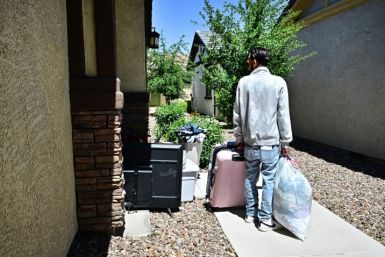Western Australia Needs 150,000 Mine Workers by 2015
Mining billionaire Gina Rinehart predicted continuous growth for Australia's booming mining industry despite threats from red tape, taxes and labour shortages.
She said at the Commonwealth Business Forum in Perth on Wednesday that because of the fast-paced growth in the industry, Western Australia (WA) alone would need 150,000 more mine workers by 2015.
Her estimate dovetails with a forecast by the WA Chamber of Commerce and Industry that more than 450,000 additional miners would be needed by the state in the next 10 years.
This early, Rinehart's company, Hancock Prospecting, is finding it difficult to hire enough employees to build the firm's $6.94-billion Roy Hill iron ore mine project in Pilbara. Ms Rinehart explained that aside from the tight labour market, the problem is compounded by reluctance of workers to live in a remote area like Pilbara.
To address the problem she sought the establishment of a special economic zone in the region that would offer tax break for mine workers. Ms Rinehart also warned that the government's carbon and mining taxes could drive away investments in the mining sector.
Besides the growing labour shortage problem, what is also booming in the industry is the bureaucracy that mine operators have to go through. Ms Rinehart disclosed the Hancock had to apply for more than 3,100 permits to develop the Roy Hill iron ore.
"Last year we said about 1,500 permits and approvals but unfortunately we've found even more.... The burden is simply too great for small and even medium companies and must be drastically reduced if we wish to be a business hub," The Sydney Morning Herald quoted Ms Rinehart.
Other mining executives echoed Ms Rinehart's sentiments about the labour shortage problem. Woodside Petroleum Chief Executive Peter Coleman proposed a debate on interstate migration and higher visa quotas for migrant workers.
"Quite simply, a substantial part of Australia's skilled workforce needs to move west if we are to meet ever-growing demands from our region for resources and energy.... Business can help deal with labour shortages by investing in skills and innovation, while government can play its part by putting in place the taxation and industrial relations policies necessary to boost productivity," The Australian quoted Mr Coleman.
"We tend to see ourselves in Australia as unique and we're not. There's minerals all over this world and we've got to be able to ship them out competitively otherwise countries will buy elsewhere," Ms Rinehart warned.






